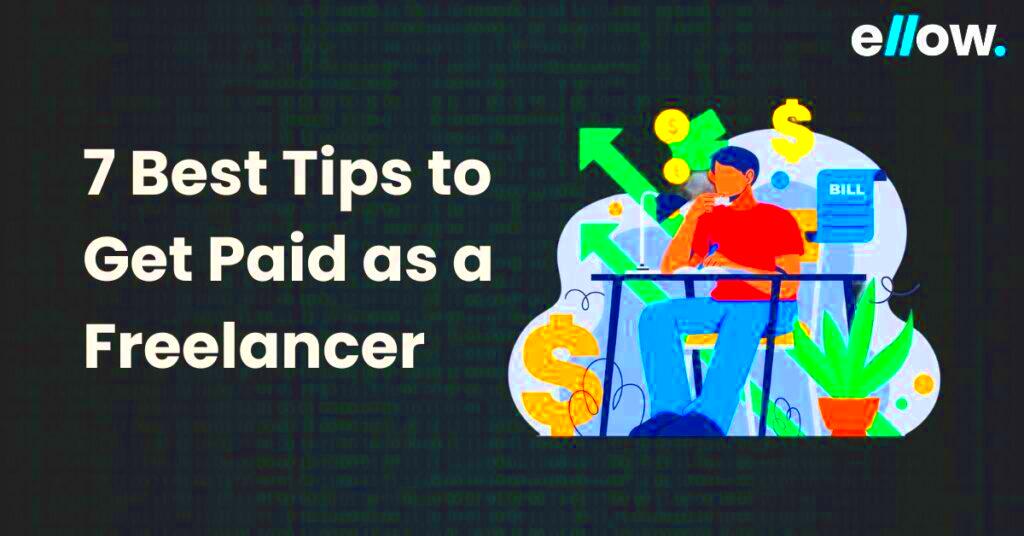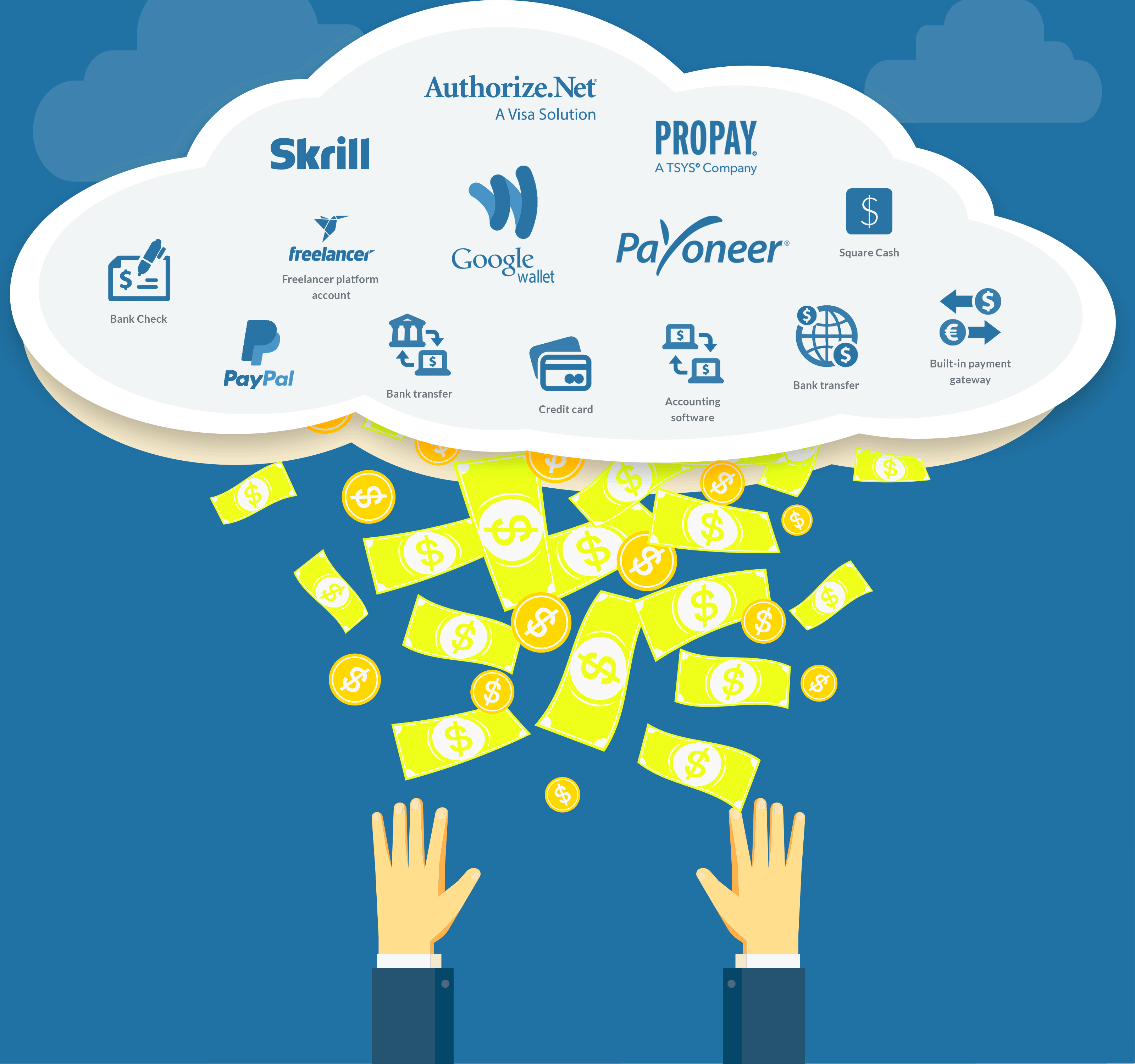Having a good pay is one of the most important things in freelancing. There are numerous ways of paying for freelancers all over the world, but every method does not work for everybody. Choosing the right method is important because it has to fit both your needs and those of your clients. In this section, we will discuss different payment ways that freelancers can use to receive their hard-earned money hassle-free.
Exploring Direct Bank Transfers

For making money transfers direct to banks are one of the simplest methods. Below are some reasons why numerous freelancers would rather opt for this mode of payment:
- Low Fees: Most banks charge minimal fees for direct transfers.
- Security: Bank transfers are generally secure, reducing the risk of fraud.
- Instant Access: Funds are often available immediately or within a day.
Nevertheless, it’s worth noting that not every customer may feel at ease with this approach. The following are some pointers on how to use direct deposits successfully:
- Ensure you provide your bank details accurately.
- Discuss any fees your bank may charge upfront.
- Keep records of all transactions for your financial tracking.
Also Read This: Do You Have to Have 3 Packages on Fiverr?
Using PayPal for Smooth Transactions

Freelancers love PayPal because it is one of the most common methods for payment processing. With a user-friendly interface plus numerous places that accept it, this service provider has become the favorite choice of many people. These are few explanations as to why you should think about using PayPal:
- Global Reach: PayPal is accepted in many countries, allowing you to work with international clients.
- User-Friendly: The interface is simple, making it easy for both freelancers and clients to navigate.
- Fast Payments: Transactions are often instant, giving you quicker access to your funds.
Though PayPal is quite handy, one should know about charges on receipts.
| Transaction Type | Fee |
|---|---|
| Domestic Payments | 2.9% + $0.30 per transaction |
| International Payments | 4.4% + a fixed fee based on currency |
In order to maximize the use of PayPal:
- Verify your account to increase transaction limits.
- Consider converting to a business account for additional features.
- Be aware of exchange rates if dealing with foreign clients.
Also Read This: How to Get Order on Fiverr as a New Seller
Getting Paid through Online Platforms

The freelancers payment process has been transformed by the emergence of online platforms that provide easy transaction solutions. Websites like Fiverr, Upwork and Freelancer.com come with inbuilt payment systems to ensure security for both parties involved. Thus their financial operations are managed by these kinds of websites, allowing the users concentrate on their work. Now let us analyze how these platforms operate and why they are vital for freelancers.
Below are the advantages of payment by online platforms:
- Secure Payments: These platforms often have security measures in place to protect your payments.
- Dispute Resolution: They provide support in case of any payment disputes, adding an extra layer of protection.
- Easy Tracking: You can easily track your earnings and invoices through the platform’s dashboard.
- Multi-Currency Support: Many platforms allow payments in various currencies, making it easier to work with international clients.
But one should note that usually, these platforms do levy some service charges. A brief rundown of the popular costs you can come across includes:
| Platform | Service Fee |
|---|---|
| Fiverr | 20% on earnings |
| Upwork | 5% to 20% based on total billings |
| Freelancer.com | 10% or $5 (whichever is greater) |
Comprehending charges along with its benefits, will enable you to opt for a suitable platform that is more advantageous for your freelance profession.
Also Read This: Explore the Steps to Craft the Perfect Fiverr Gig Title for Graphic Design
Accepting Credit Card Payments

Another efficient method of getting paid by freelancers is to accept credit card payments. For many clients, using credit cards is a matter of convenience, and therefore as a freelancer, offering this payment option increases chances of getting jobs. Here are some tips on how with credit card payments.
The following are the advantages of accepting credit cards:
- Wider Client Base: Many clients feel comfortable paying with credit cards, allowing you to expand your market.
- Immediate Payment: Funds are typically available faster compared to traditional bank transfers.
- Increased Trust: Having a credit card payment option can enhance your credibility as a professional.
Simply put, you can use Square or Stripe to easily and quickly accept credit card payments.
| Service | Fee Structure |
|---|---|
| Square | 2.6% + 10¢ per swipe |
| Stripe | 2.9% + 30¢ per transaction |
Pay attention to the prices and characteristics of every single feature. If done right, you will be capable of taking credit card payments without any troubles and beautify your freelance dealings.
Also Read This: Is It Free to Sell on Fiverr? A Comprehensive Guide
Considering Cryptocurrency Payments
The digital currencies are increasing in demand, therefore several freelance workers have started to receive payments using cryptocurrencies. Though this new payment approach has some unique benefits, it entails its own challenges too. If you are wondering how you can start accepting crypto payments, here is a guideline:
The following are a few explanations that may be useful for freelancers when thinking about cryptocurrency:
- Lower Transaction Fees: Crypto transactions often have lower fees compared to traditional payment methods.
- Fast Transactions: Crypto payments can be processed quickly, sometimes instantly, regardless of geographical location.
- Anonymity: Depending on the cryptocurrency, clients can make payments without sharing personal information.
Nevertheless, borne in mind must be certain aspects:
- Volatility: The value of cryptocurrencies can fluctuate dramatically, which may impact your earnings.
- Acceptance: Not all clients are familiar with or willing to use cryptocurrencies.
- Legal Implications: Ensure you understand the tax implications of accepting cryptocurrency in your country.
If you want to start accepting crypto payments, think about using platforms such as Coinbase or BitPay for this purpose. They provide instruments that facilitate better handling of cryptographic transactions:
| Platform | Key Features |
|---|---|
| Coinbase | User-friendly interface and multiple currency support |
| BitPay | Ability to convert crypto to fiat instantly |
By exploring cryptocurrency as a method of payment, one can access an emerging market while being able to enjoy some exclusive advantages.
Also Read This: How to Start Working as a Freelance Augmented Reality Developer
Setting Up Retainers and Contracts
If you do any freelance work, a solid agreement will save you from headaches in the future. Retainers and contracts are established to ensure that both parties understand the terms of their working relationship. An excellent contract will specify expectations, payment timelines and the scope of a project thus helping you preserve professionalism.
Key elements that ought to be incorporated into your contracts comprise:
- Scope of Work: Clearly outline what services you will provide, including specific tasks and deliverables.
- Payment Terms: Specify your rates, payment schedule, and methods of payment. For retainers, detail how much clients will pay and how often.
- Timeline: Include deadlines for deliverables and milestones to keep projects on track.
- Termination Clause: State how either party can terminate the contract if needed, including any notice periods.
Incessant engagement can well do with retainership fee as they give you a consistent flow of income while giving you the freedom to allocate your time to the client. There are a variety of retainer options one can offer like:
| Retainer Type | Description |
|---|---|
| Monthly Retainer | A fixed fee for a set number of hours or services each month. |
| Project-Based Retainer | A fee for a specific project that covers all related tasks until completion. |
When you set clear terms and maintain open communication, it entwines you in a relationship with your clients that is symbiotic and greatly enhances your freelance career.
Also Read This: Starting Your Career as a Freelance Lawyer: What You Should Know
Managing Taxes and Fees
Tax and financial management are important aspects for every freelancer to maintain their financial health. Unlike regular employees who have their taxes already deducted from their salaries, freelancers are responsible for their own taxes, which might seem quite overwhelming. Nevertheless, with the right knowledge in place, tax season may become less chaotic.
When it comes to tax management, you might want to pay attention to these important factors:
- Know Your Tax Obligations: Understand what taxes you are required to pay, including income tax and self-employment tax.
- Keep Accurate Records: Track your income and expenses meticulously. Use accounting software or spreadsheets to keep everything organized.
- Deductible Expenses: Familiarize yourself with what expenses you can deduct, such as:
- Office supplies
- Software subscriptions
- Home office expenses
- Professional development
Beyond everything it is important to keep aside part of your earnings for tax purposes. A common rule of thumb is saving around 25% to 30% from what you earn. You can do this by:
- Creating a separate savings account for taxes
- Setting aside money from each payment received
- Consulting with a tax professional to estimate your liabilities
If you managing your fees and taxes properly, then you can dedicate yourself to the services that you offer best and which others admire.
Also Read This: How to Successfully Do Gigs on Fiverr: A Comprehensive Guide
FAQ
Various inquiries frequently arise among freelancers about their financing and payment:
What is a retainer?
A retainer is a payment made in advance for your services to be secured for a certain duration. It assists to guarantee that you have a regular source of income and that the period of your time is booked for the customer.
How do I know which payment method to choose?
When it comes to clients’ tastes, evaluating each way’s costs and the urgency of retrieving funds are things that matter a lot. Sometimes it is good for different clients to have various means of payment made available to them.
Are my freelance earnings taxable?
Money earned from freelancing is typically subject to taxation anyways. You are solely responsible for declaring what you earn and paying taxes as fit. Precise recordkeeping makes it simpler during tax season.
How can I protect myself legally when freelancing?
Every client interaction necessitates the use of agreements. Be explicit about everything and, if necessary, seek legal advice on certain issues.
What should I do if a client refuses to pay?
Connect with the client directly to fix the issue.Try that it does not help, refer to your agreement and think about using mediation or, as a last resort,going for a lawsuit.
Conclusion
Initially, handling payments as a freelancer may appear to be challenging but familiarizing yourself with different payment methods could simplify things. From direct bank transfers to online platforms like PayPal and others, as well as credit cards and even cryptocurrencies, you can select the most suitable option for your business. Clear contracts and retainers will help in managing your client’s expectations while appropriate tax and fee management ensures you remain financially stable. Always keep track of what you earn from freelancing projects and develop yourself by knowing more about your area of expertise so that you can make it big.




